Normal Vowels and Consonants Worksheets for Ages 5-8
26 filtered results
-
From - To
Enhance your child's reading and writing skills with our engaging "Normal Vowels and Consonants Worksheets" designed for ages 5-8! These printable worksheets by Kids Academy offer a fun and educational way to help young learners distinguish between vowels and consonants. Each activity is crafted to reinforce alphabet recognition, improve pronunciation, and build foundational literacy skills. With vibrant illustrations and interactive exercises, children will stay motivated as they enhance their linguistic abilities in a playful and effective manner. Perfect for classroom use or at-home learning, our worksheets make mastering the alphabet a joyful journey. Visit Kids Academy to download now!
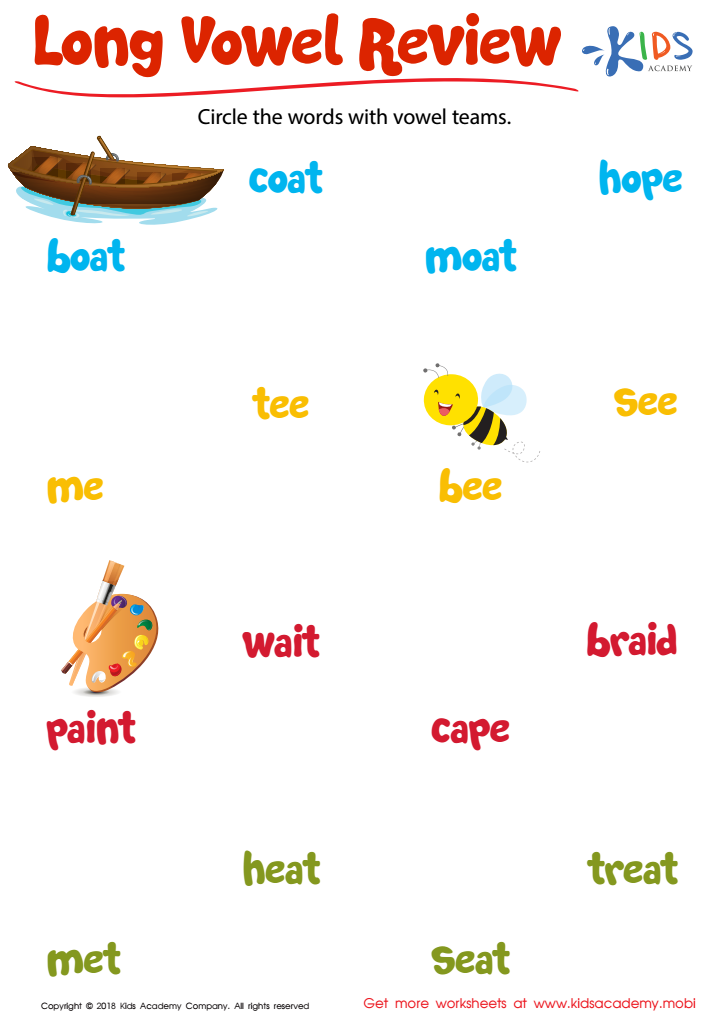

Long Vowel Review Worksheet
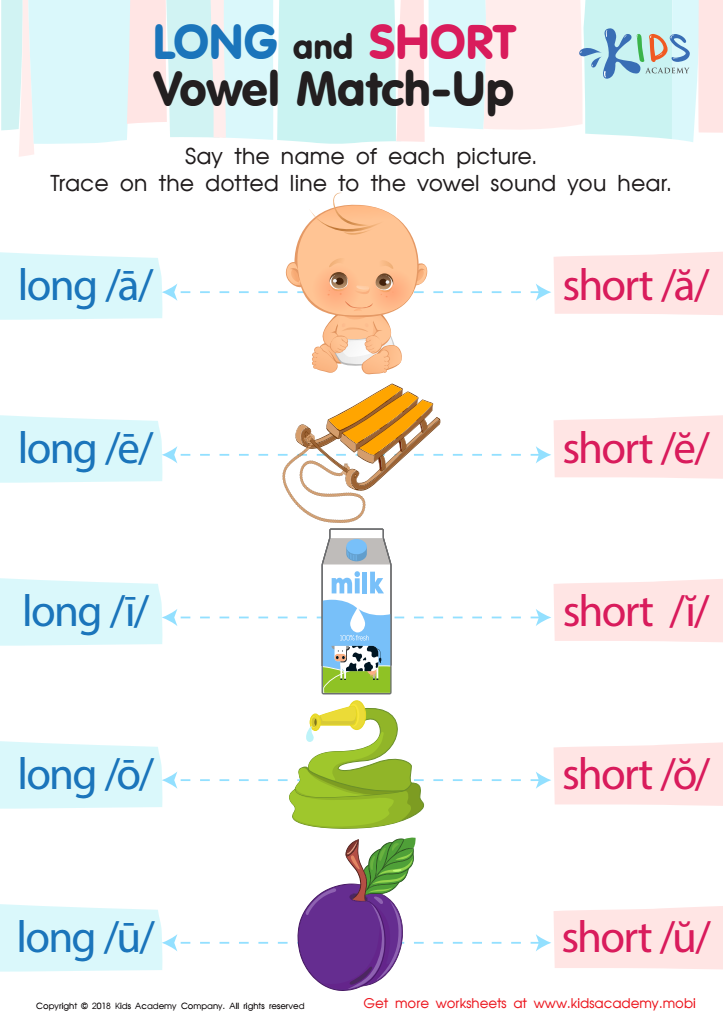

Long and Short Vowel Match up Reading Worksheet


Let's Check Long Vowels: Assessment Worksheet
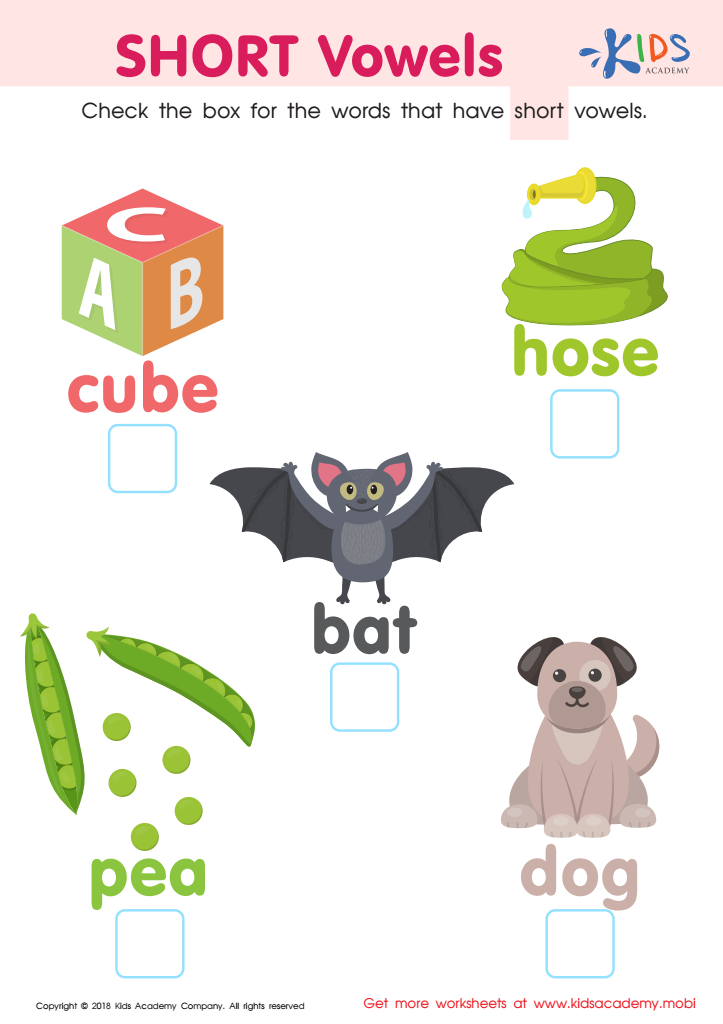

short vowels Worksheet
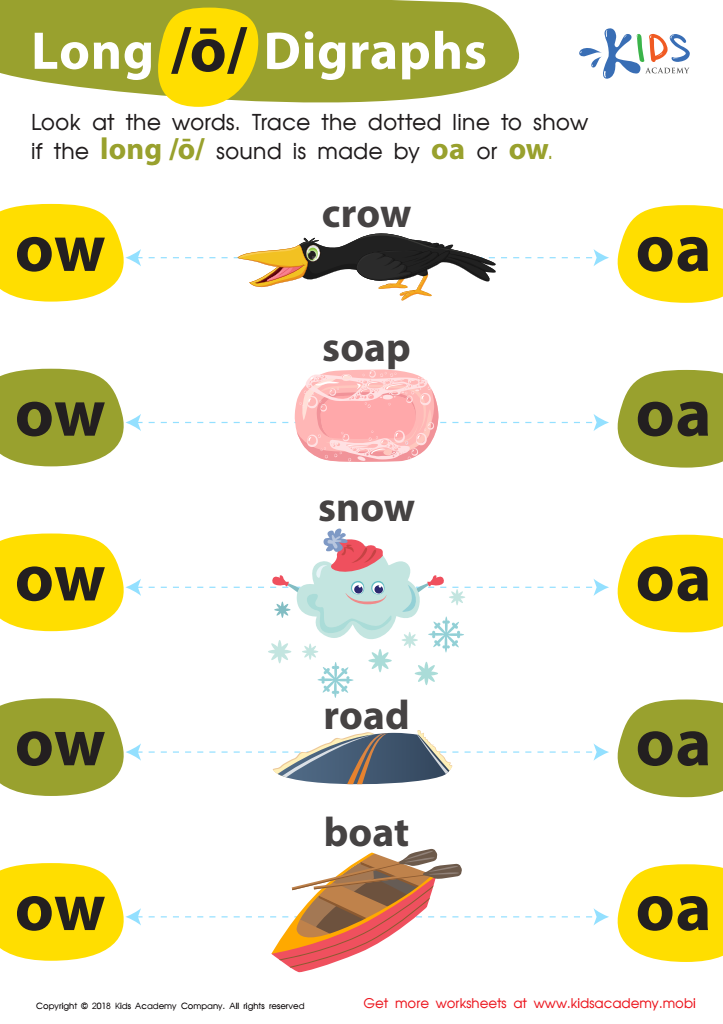

Reading: Long O Digraphs Worksheet


Vowel and Consonant Sounds: Assessment Worksheet


Short Vowels /e/, /i/, and /u/ Worksheet
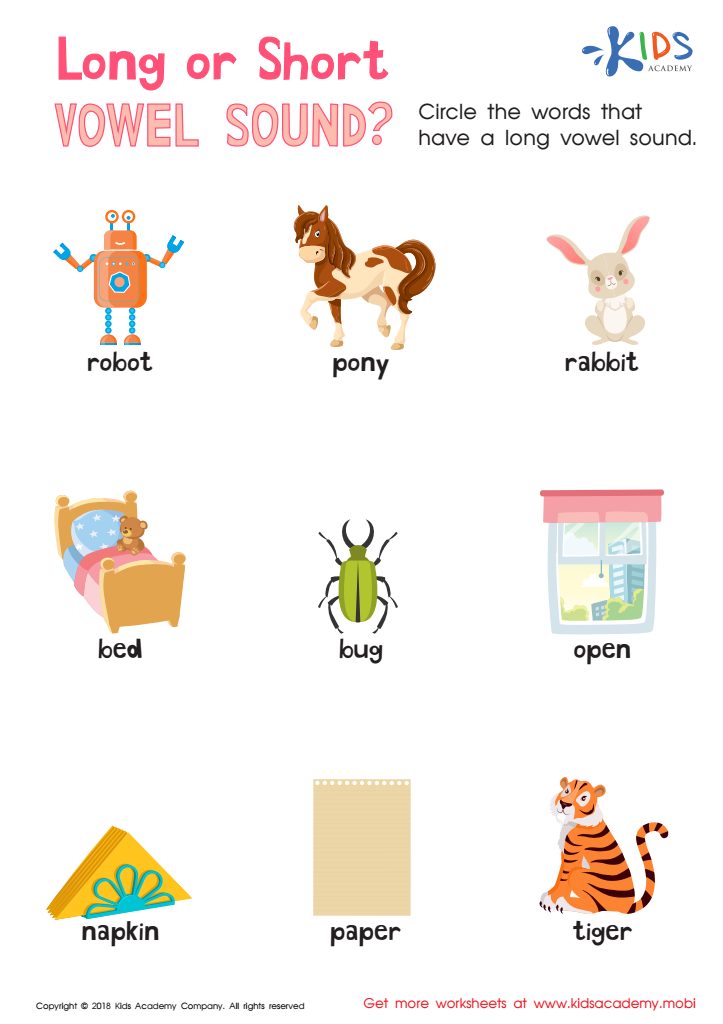

Long or Short Vowel Sound? Worksheet
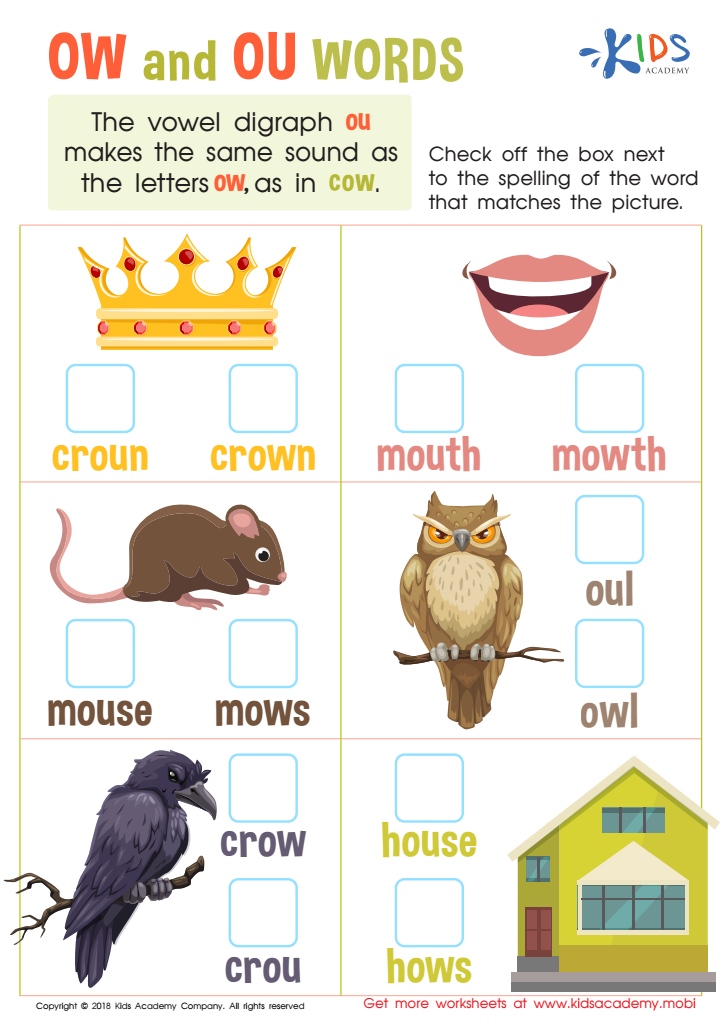

Reading: OW and OU Words Worksheet
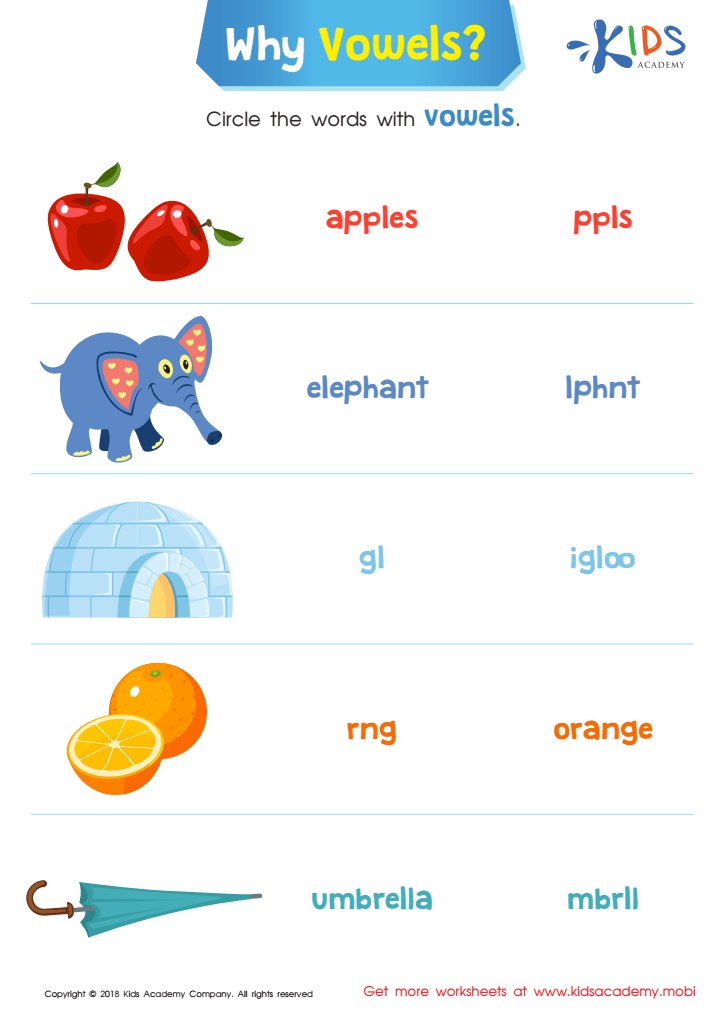

Why Vowels? Reading Worksheet
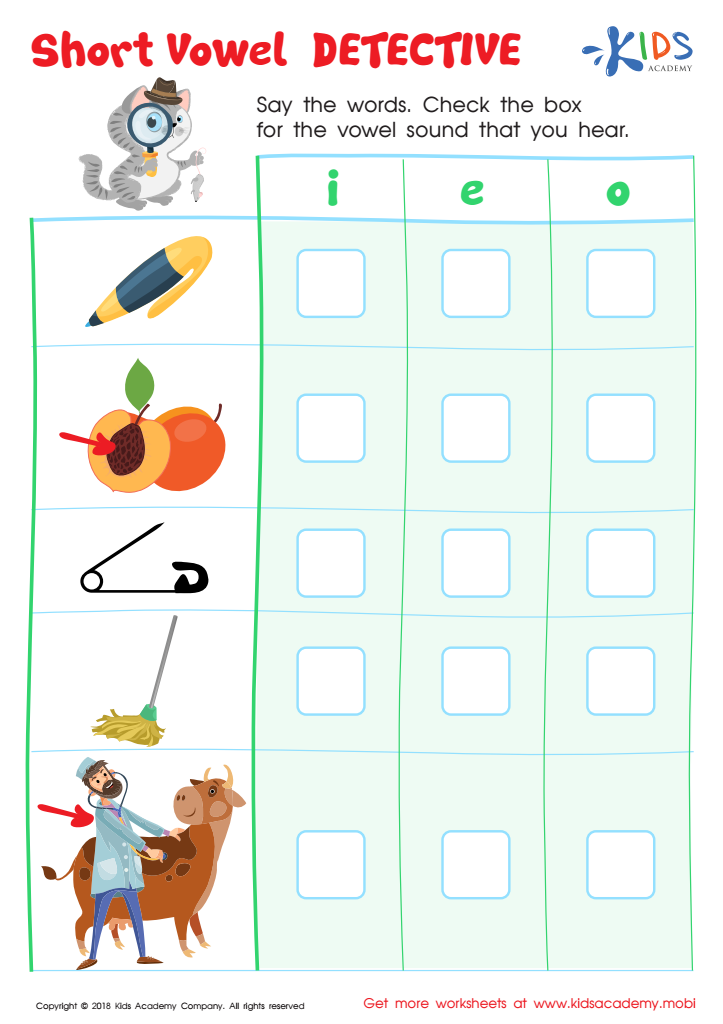

Short Vowel Detective Worksheet
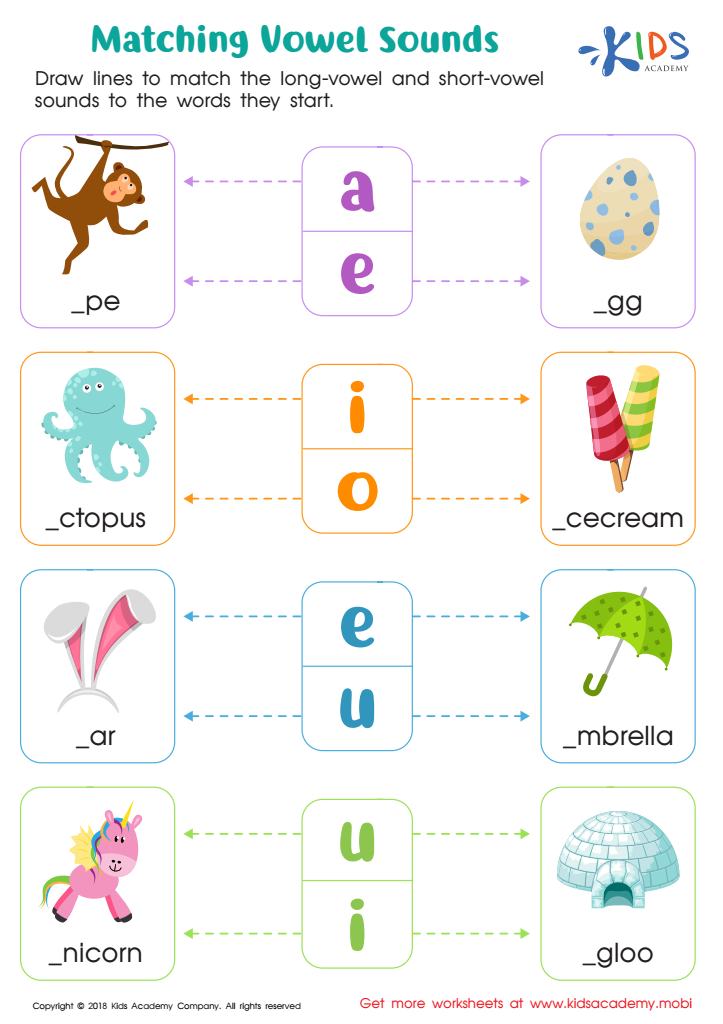

Matching Vowel Sounds Worksheet


Short Vowel Eggs Worksheet
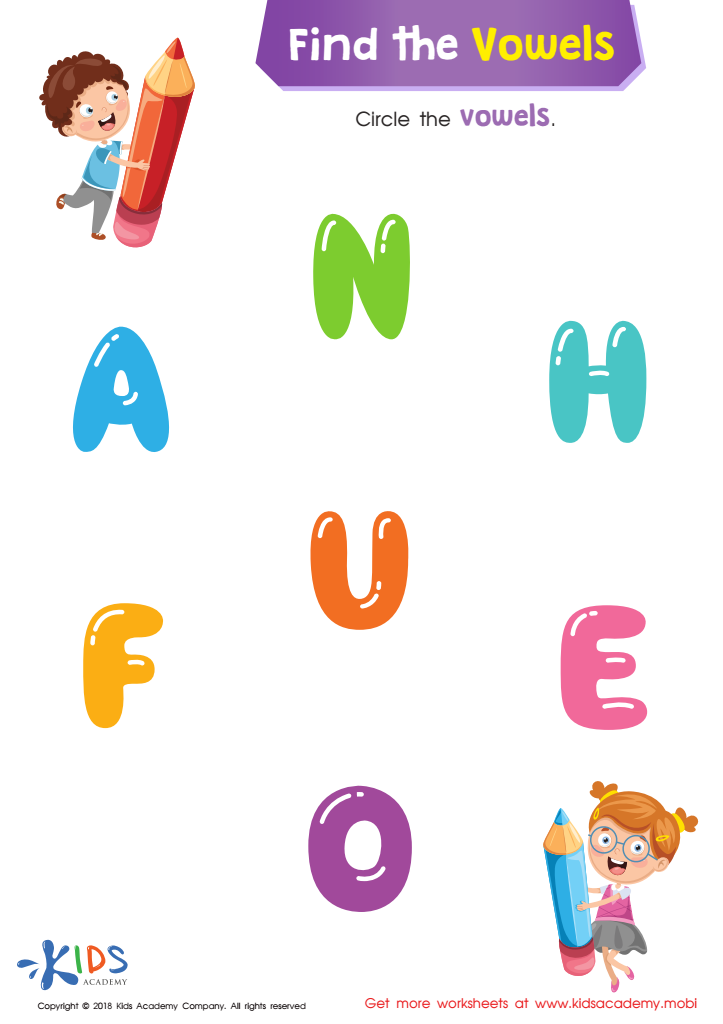

Find the Vowels Reading Worksheet
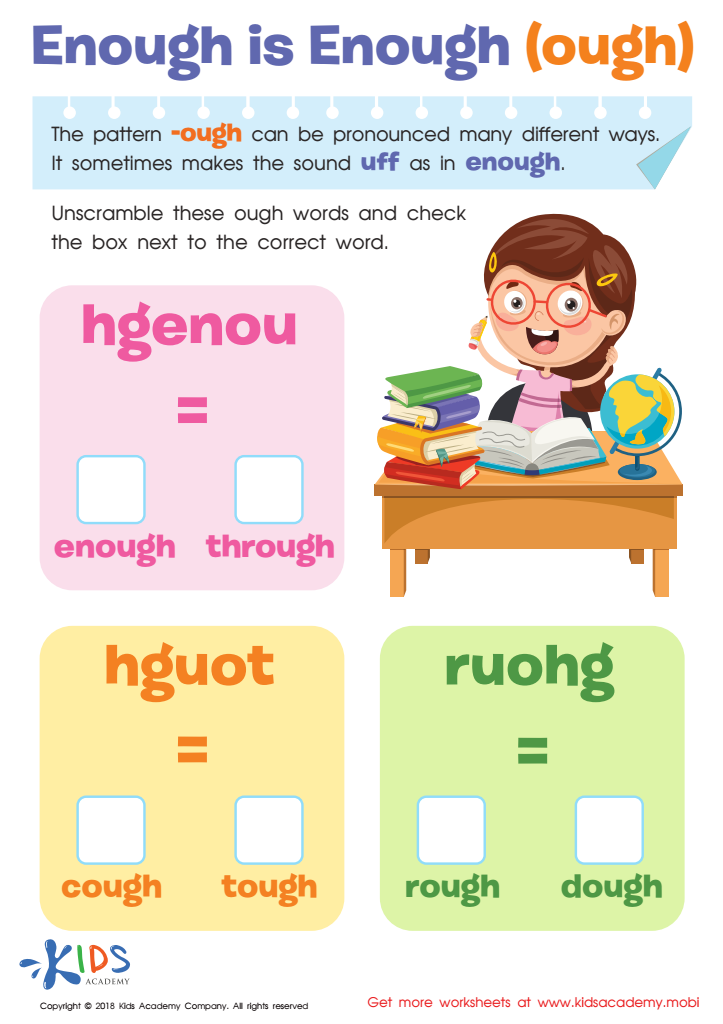

Enough Is Enough (ough) Worksheet
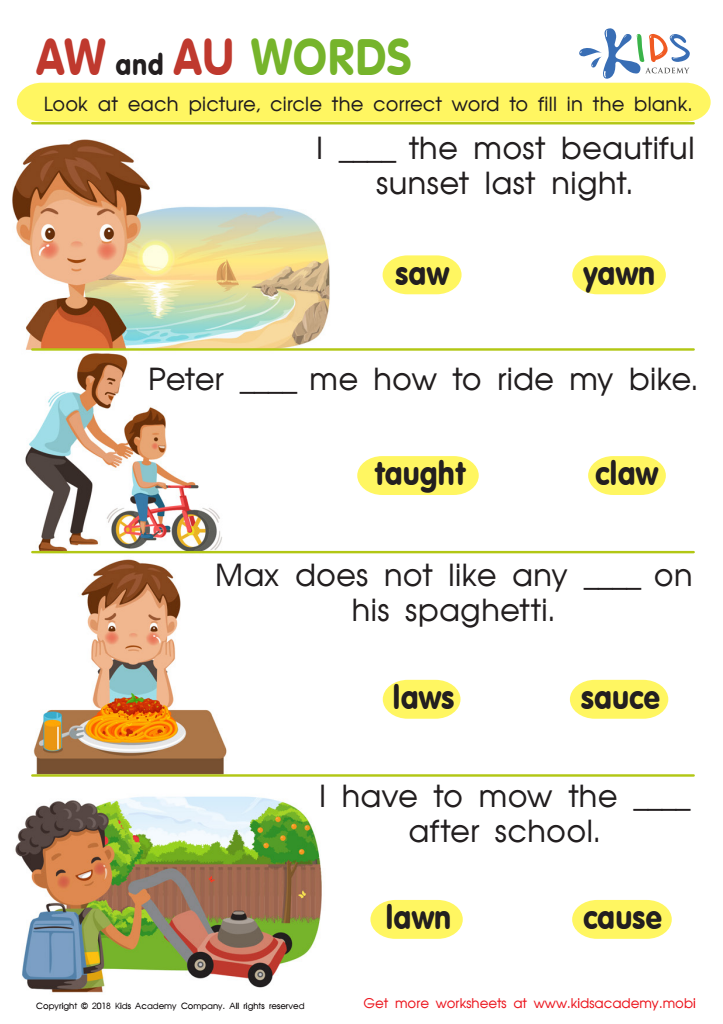

Reading: AW and AU Words Worksheet
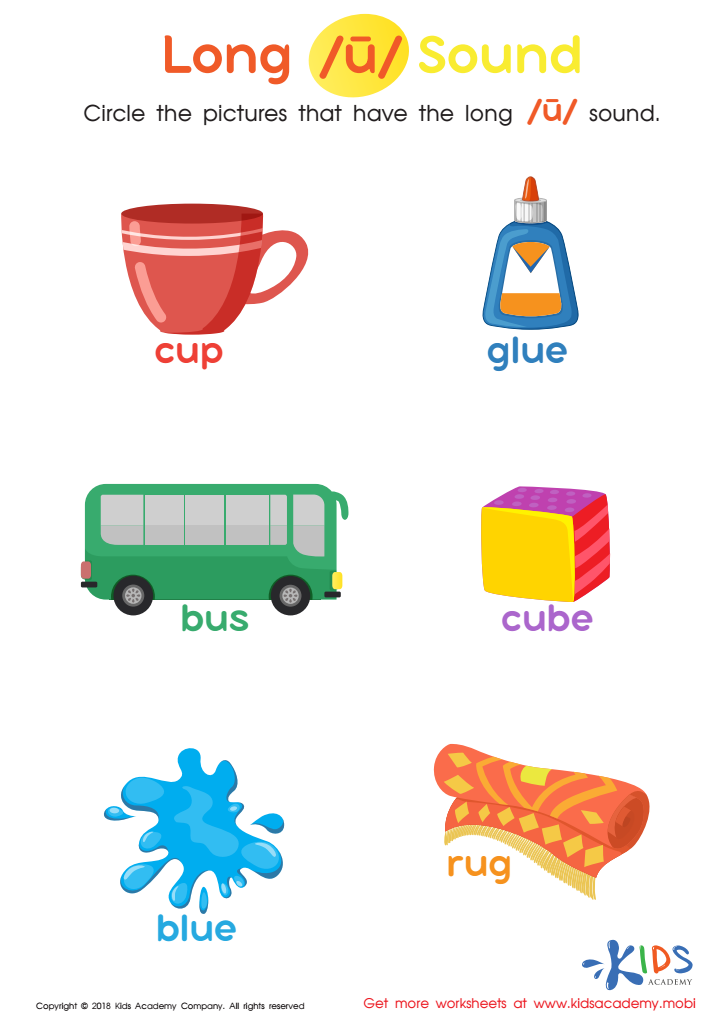

Long «u» Sound Worksheet
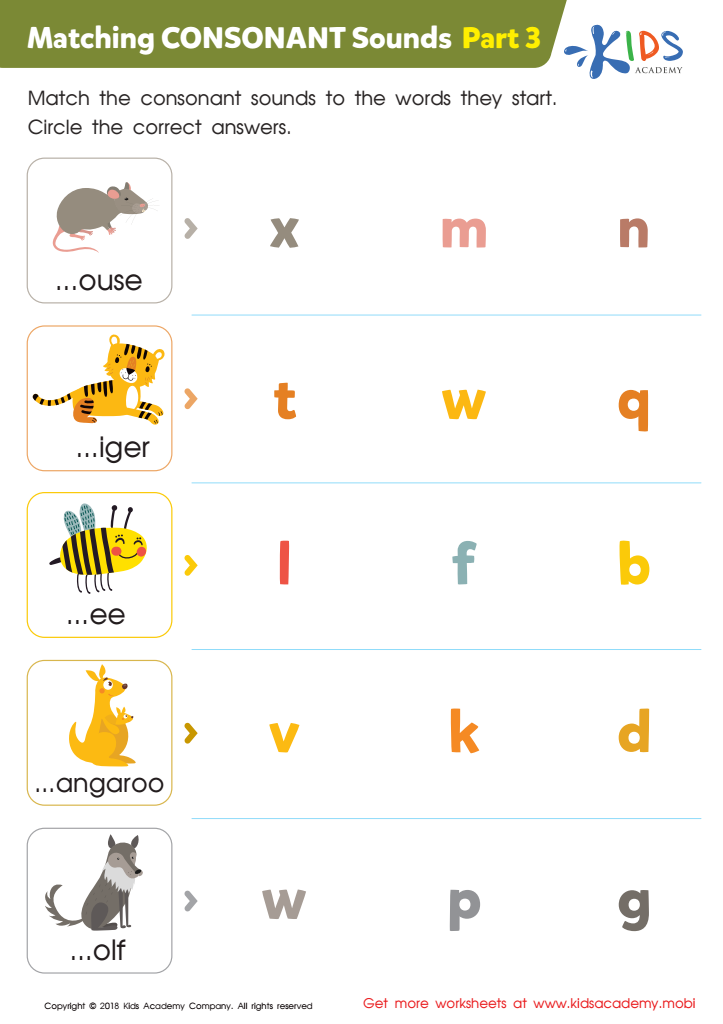

Matching Consonant Sounds: Part 3 Worksheet
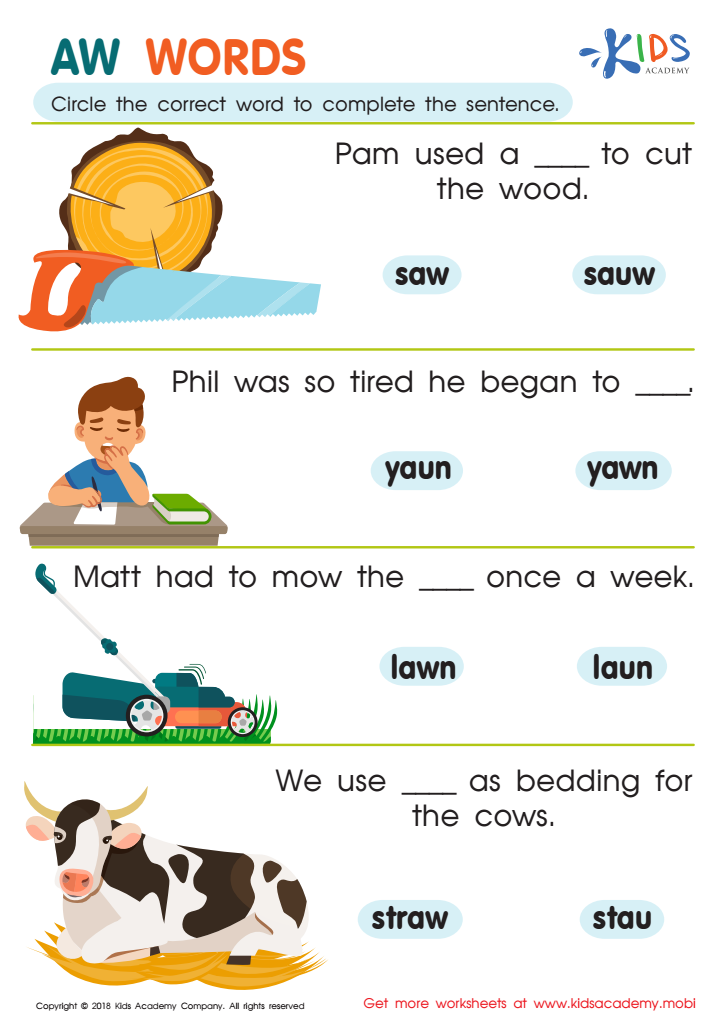

Reading: AW Words Worksheet
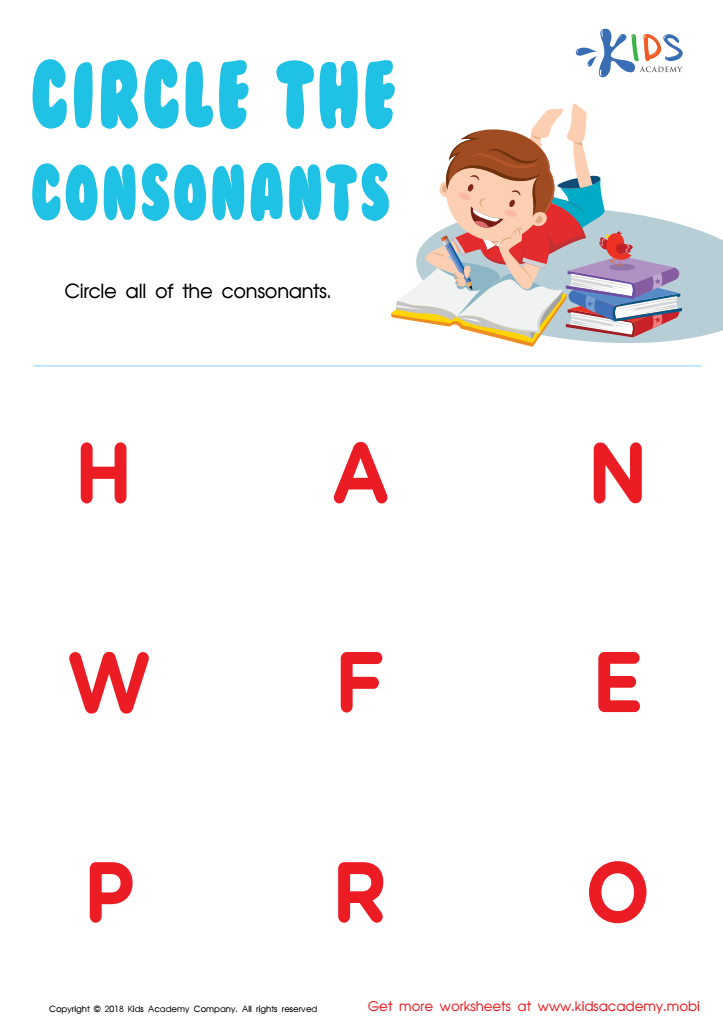

Circle the Consonants Worksheet


Long and Short Vowel Sentences: Assessment Worksheet
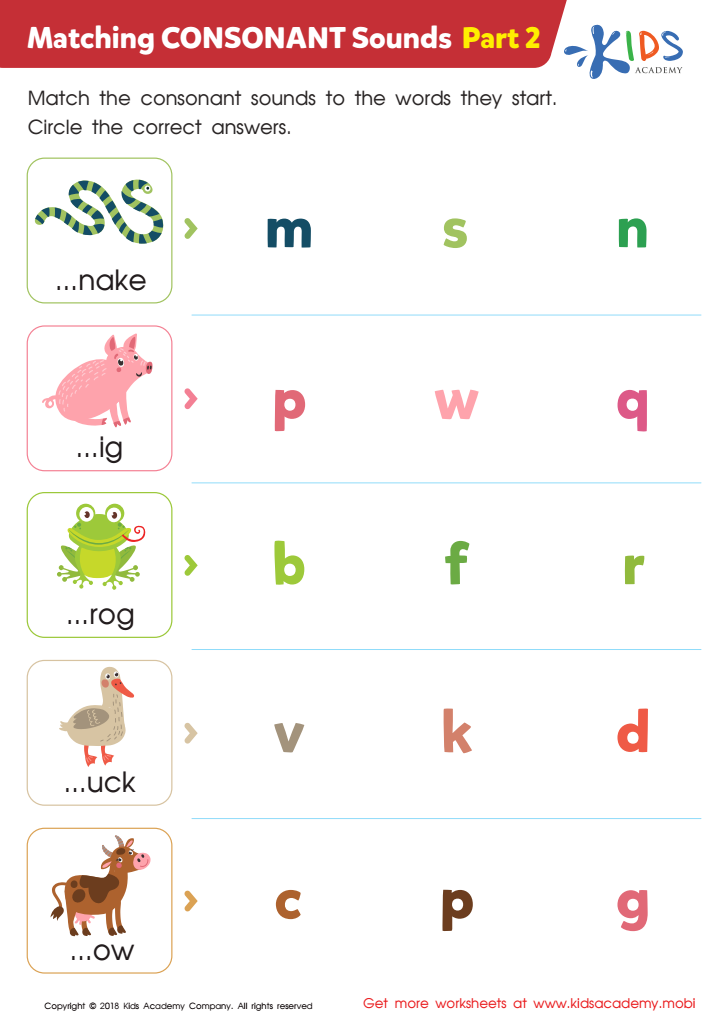

Matching Consonant Sounds: Part 2 Worksheet
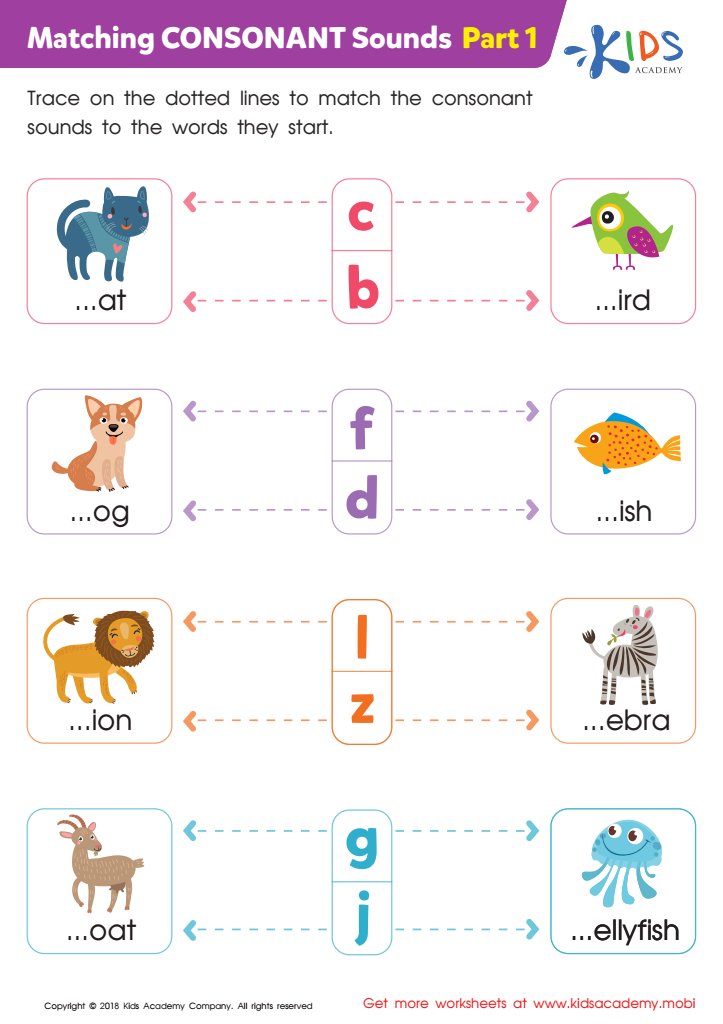

Matching Consonant Sounds: Part 1 Worksheet
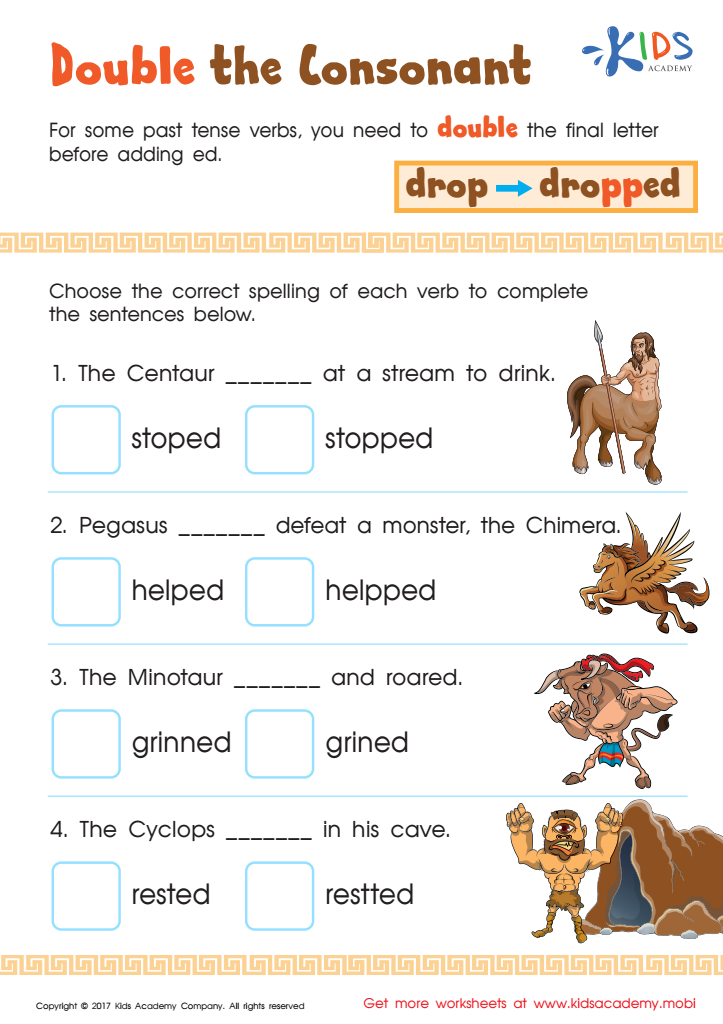

Double Consonant Spelling Worksheet
Parents and teachers should care about normal vowels and consonants for children aged 5-8 because these are foundational elements of language learning and literacy. At this stage, children are in the crucial period of acquiring basic reading and writing skills, and a solid understanding of vowels and consonants is essential for this development.
Vowels and consonants form the building blocks of words, and knowing them helps children decode and pronounce new words accurately. Mastery of these sounds enables children to blend phonemes to form syllables and words, a skill critical for reading fluency. Moreover, recognizing different vowel and consonant sounds enhances phonemic awareness, enabling children to understand how sounds correspond to written letters within the English language's structure.
Additionally, familiarity with normal vowels and consonants aids in correct spelling and empowers children to write independently, enhancing their overall communication skills. Early difficulties in grasping these concepts can lead to frustration and reading challenges, so early intervention and consistent practice are vital.
Teachers and parents who emphasize the importance of vowels and consonants contribute positively toward their children's academic success and cultivate a foundation for lifelong literacy and learning. Therefore, investing time and resources into teaching these phonetic building blocks is essential for establishing effective language skills in young learners.

 Assign to My Students
Assign to My Students















